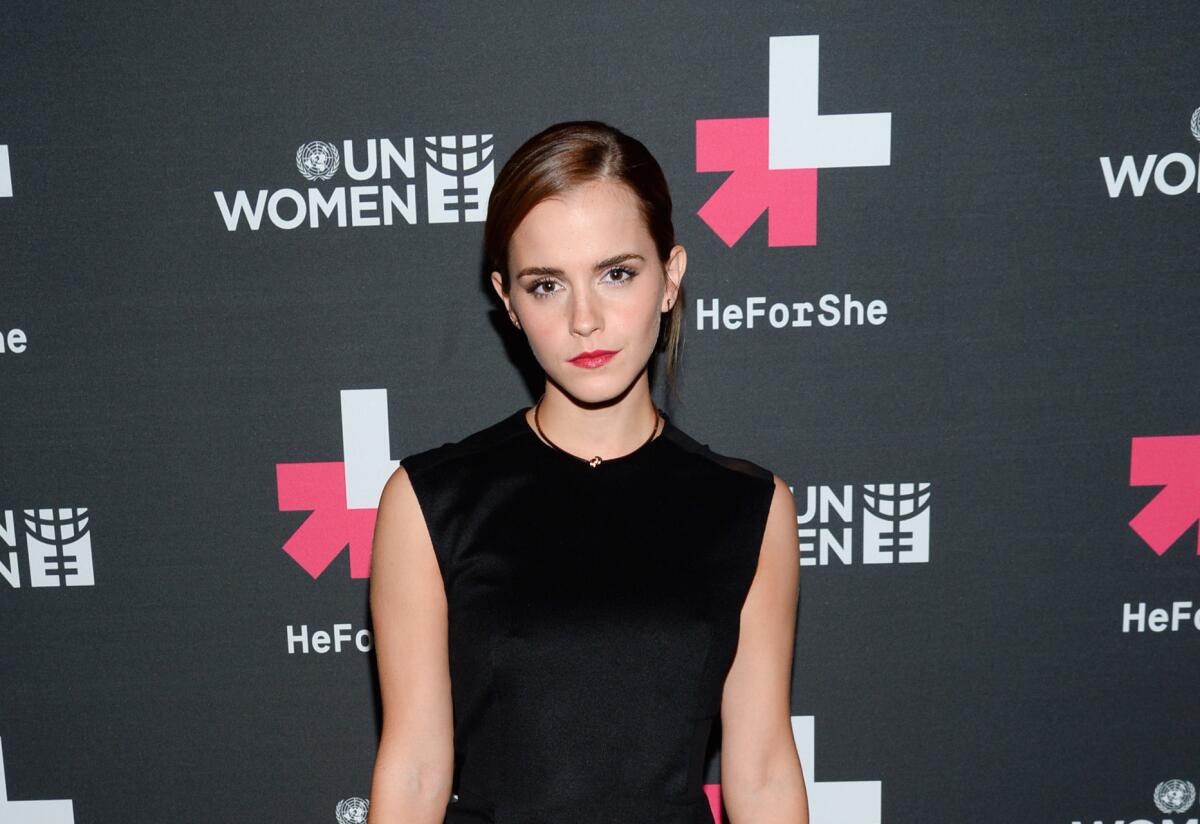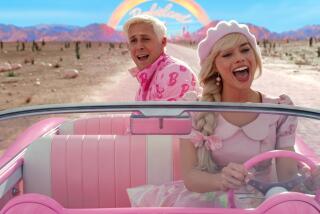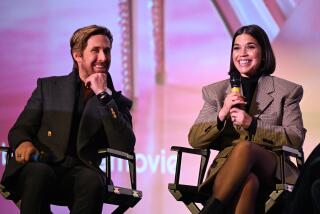Emma Watson’s feminist film career

Emma Watson has been making headlines since uttering the F-word — feminism — at the U.N. several days ago.
The 24-year-old actress and recently appointed U.N. Women Goodwill Ambassador gave a rousing 13-minute speech about gender equality at U.N. headquarters in New York on Saturday, in which she said, “We don’t just want to talk about [equality], but make sure it is tangible.” (Watch the speech, below.)
The speech is perhaps the most visible of Watson’s advocacy efforts yet — she has also made humanitarian trips to Bangladesh, Zambia and Uruguay — but in a way the actress has been quietly making a case for gender equality much of her professional career, which has been marked by a fiercely independent streak and portrayals of complex female characters.
Watson is of course best known for her portrayal of Hermione Granger, the brave and brilliant young witch in the “Harry Potter” films. Granted, the movies (and the J.K. Rowling books on which they’re based) are named for Harry, not Hermoine — but it’s repeatedly made clear during their adventures together that the Boy Who Lived wouldn’t have done so without the help of his best and brightest friend.
Hermione is the brains of the operation, to be sure, but she’s also a real three-dimensional character: a loyal friend, a bit of a know-it-all, an occasionally insecure teenager and a young woman with a mean right cross, should the circumstances call for it.
Post-”Potter,” Watson’s characters haven’t exactly been role models — which was a conscious decision by an actress setting out to prove there was more to her than the role that made her famous.
Watson’s character in Sophia Coppola’s “The Bling Ring” was a total turnaround from Hermione: She played Nicki Moore, a fame-obsessed teen who helped burgle a string of celebrity homes in the Hollywood Hills.
As Watson told British GQ, “When I read the script and I realized that essentially it was a meditation on fame and what it’s become to our society, I had to do it.” She added, “The character is everything that I felt strongly against — she’s superficial, materialistic, vain, amoral. She’s all of these things and I realized that I hated her. How do you play someone you hate? But I found it really interesting and it gave me a whole new insight into what my job, or my role as an actress, could be.”
Even “Noah,” the Biblical extravaganza in which Watson plays a supporting role, saw her tackle surprisingly feminist concerns. Watson played Ila, a young orphan rescued by Russell Crowe’s Noah and his family. Watson’s character has a crisis of conscience over marrying one of Noah’s sons when she is in fact infertile — which, if it’s not quite leaning in, certainly offered a thoughtful and independent look at the issue of reproductive rights in an era long before the term (or, for that matter, the English language) came into being.
Follow @ogettell for movie news
More to Read
Only good movies
Get the Indie Focus newsletter, Mark Olsen's weekly guide to the world of cinema.
You may occasionally receive promotional content from the Los Angeles Times.






